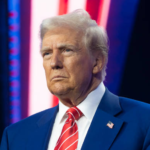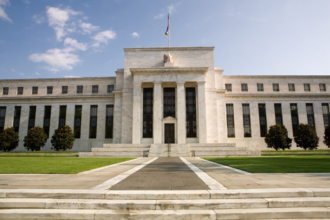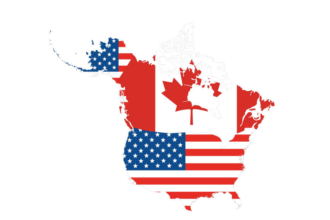About 4,000 kilometers (2,485 miles) from Australia, the Heard and McDonald Islands are a collection of uninhabited islands that the United States recently taxed. Home only to penguins and seals, these islands have been targets of tariffs as part of a larger attempt to close what the US government regards as “ridiculous loopholes” in the global trading system. A key player in the US government, Howard Lutnick, justified the choice, saying the tariffs were aimed to stop other nations from using these islands as a transshipment point to get to the US.
Transshipment is the method by which products are moved from one port to another before arriving at their end. Although this approach is widely utilized in international trade, occasionally, it is used to conceal the actual source of goods or evade taxes. The US thinks that imposing taxes on islands like the Heard and McDonald Islands is a required action to stop this behavior. Lutnick said, stressing that President Donald Trump is resolved to close these gaps head-on: “If you leave anything off the list, the countries that try to arbitrage America go through those countries to us”. The US tariffs on islands serve a larger goal of more efficient global trade regulation than only punishing particular regions.
Australian Reaction to Tariffs on the Islands
The response of Australian officials upon learning of the US proposal to levy taxes on the Heard and McDonald Islands was one of surprise and perplexity. Declaring the levies “clearly a mistake,” Australia’s trade minister, Don Farrell, voiced worries. Given the islands’ low level of trade activity, Farrell said the choice might have been hurried. Actually, with no significant businesses or industries running on the island group, its main goal is scientific study and conservation initiatives.
“It’s clear this is not something that was fully vetted,” Farrell said, stressing the mistake in not addressing the island’s special status as an uninhabited area. Given the distance of the islands and their minimal significance in world trade, the Australian government worries about how these tariffs could affect its relationship with the US.
The Australian response emphasizes the intricacy of world trade policies and how choices taken by one nation can have knock-on repercussions all around. Australia’s surprise at the action shows a mounting annoyance with certain US trade policies, which have occasionally been regarded as hurried or poorly implemented.
Why Are These Tariffs Notified?
The main justification for tariffs imposed on the Heard and McDonald Islands by the US government is prevention of possible manipulation of world trade paths. As discussed, transshipment lets goods move via middle ports, therefore hiding their actual source. Particularly in circumstances whereby nations with more favorable trade agreements with the US are involved, this activity can be exploited to escape taxes, tariffs, and trade rules.
Lutnick clarified that the US President is resolved to handle this kind of problem: “The President is going to fix that; he is tired of it.” The US taxes on islands like the Heard and McDonald Islands are considered as a means of ensuring that no area of the world trade system becomes a target for bad actors seeking trade manipulation advantage. Lutnick underlined that the choice was taken to guarantee justice and stop the systemic abuse of weaknesses.
Opponents of the tariffs contend that they are out of proportion and that the islands—which hardly trade—should not be subject to such policies. Still, the US administration sees the action as a required step toward safeguarding American economic interests. Though some areas do not actively engage in world trade, the concept is to restrict any possible path via which commodities could be redirected or falsely claimed to come from a particular territory.
How would these tariffs affect world trade?
Although the tariffs’ direct effects on the Heard and McDonald Islands might seem to be negligible, their wider consequences for world trade could be major. The US imports a range of goods from all around the world, and transshipment is a well-known technique used to cover items’ sources. In areas where nations are attempting to take advantage of trade gaps, this habit is especially prevalent. One instance of this is the illicit movement of prized seafood species, including tuna, in the Pacific Ocean.
Some nations have been using the transshipment technique to illegally transport hundreds of millions of dollars’ worth of tuna and other species annually, according the Pew Charitable Trusts. The Pew Charitable Trusts has also underlined the part transshipment plays in complicated transportation events that can hide trade practices, therefore complicating the tracking of actual commodities and identification of illicit activity.
Maintaining the integrity of the world trade system depends on the US seeing the closing of such loopholes as essential. According to World Bank data, the Heard and McDonald Islands have historically exported machinery and electrical equipment, among other items, to the US. US$1.4 million in commodities imported from the islands by the US in 20.22. Although the overall value of the shipments is rather low, the US government sees the imposition of tariffs as part of a more overall policy to prohibit even the tiniest trade routes from being exploited for unlawful reasons.
Which other territories do these tariffs effect
Apart from the Heard and McDonald Islands, US tariffs also target other areas that might function as transshipment hubs. One such territory under stringent entry restrictions and manned by military forces is the British Indian Ocean Territory. Special permits are needed for visitors to enter the zone, which has very few civilian populations. The British Indian Ocean Territory exported around US$414,350 worth of commodities to the US in 2022 despite low commercial activity.
Although these islands are hardly likely to be significant participants in world commerce, the US government has decided to include them in its attempts to control trade manipulation and transshipment. The tariffs are meant to ensure that no territory remains ungoverned and that no possible opening for bad actor exploitation exists.
This implies what for global trade moving ahead?
Tariffs applied on the Heard and McDonald Islands have set off a chain reaction in world financial markets. With the tariffs announced, all three major US stock indices had notable declines; the stock market suffered its worst week since 2020. The instant financial impact on world markets reminds us of how sensitive worldwide trade policies may be and how changes in trade policy might cause general market instability.
Still unknown, though, is how these levies might affect world trade over long terms. With other nations perhaps following suit and focusing on less-known regions, some analysts believe that the US tariffs on islands like the Heard and McDonald Islands could create a precedent for next trade policies. Over time, this may result in more control of world trade routes and maybe more limited goods movement across countries.
Officials of the US government continue to defend the tariffs as a required action to safeguard American markets and guarantee fairness in world commerce, hence, their position is uncompromising. A key component of the government’s larger approach to fighting trade manipulation, US tariffs on islands indicate a change toward more strict trade restrictions going ahead. Though only time will tell whether or not these policies prove successful in the long run, it is abundantly evident that the US is resolved to tackle these problems squarely.








